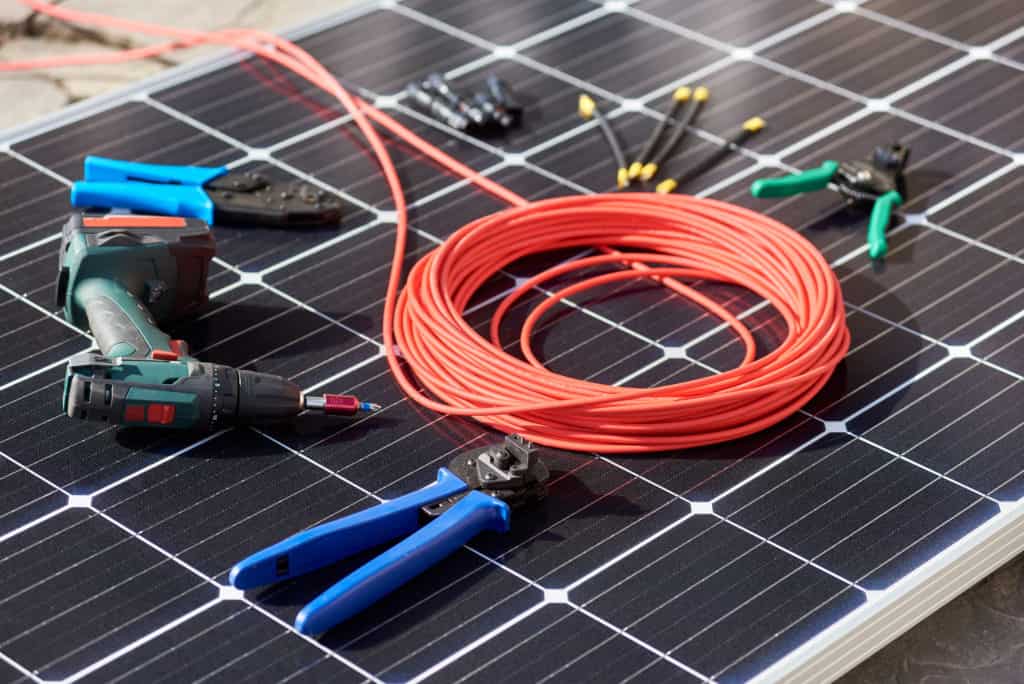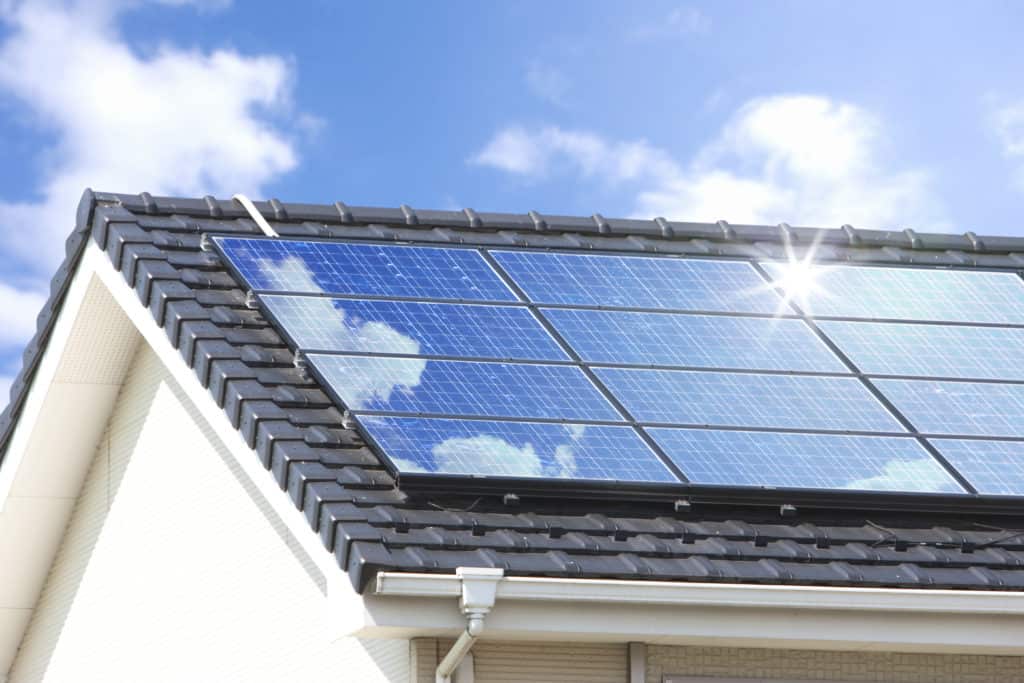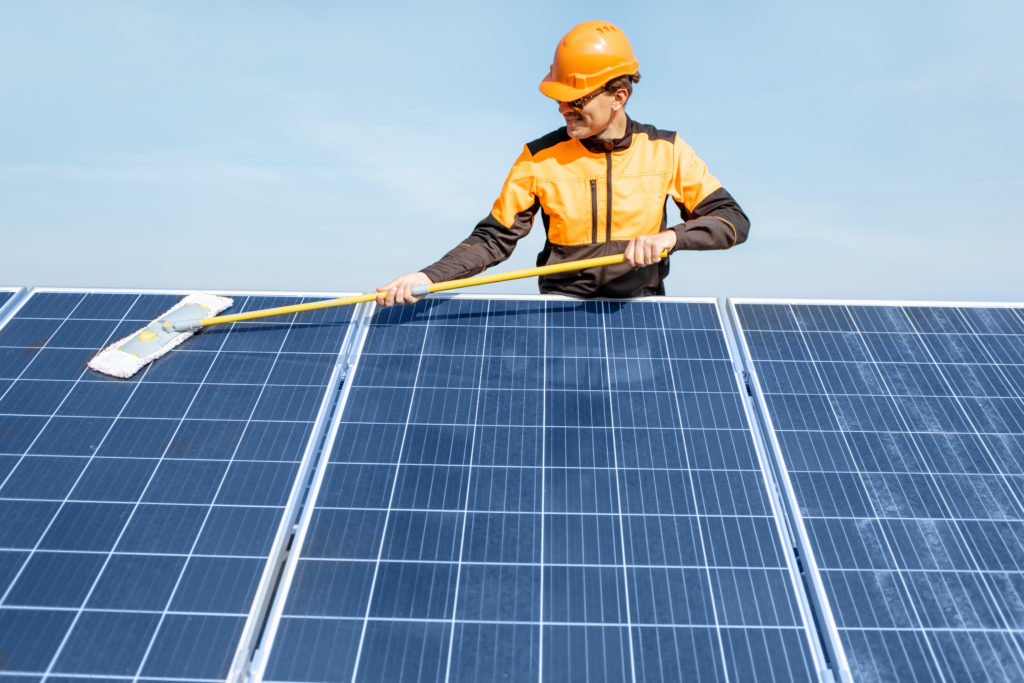
Solar panels are a great way to use clean, less expensive energy. However, as with most other electrical appliances, they do come with some risks.
Solar panels can indeed shock you if you are not careful. The most common ways for this to happen include touching the wiring, touching a panel with a cracked surface, or coming into contact with the panel’s terminal output.
There are definitely risks in using solar panels, even though they are very efficient. Here are a few to be aware of before investing.
Risks they pose
The thing about solar panels is you generally can’t shut them off. You can disconnect the power coming to your house from the panels, but as long as the sun is out, the panels will still potentially be loading energy which makes them somewhat dangerous to touch. If you need to install them or uninstall them, it is definitely advisable to do this at night, or to cover them with an opaque tarp to keep sunlight and electricity from entering the panels. If you stay away from the wiring you should be okay. However, if you find that one or more of your panels have a cracked surface, you should call an electrician and get that taken care of right away.
Aside from electrocution, there are a few other risks that solar panels pose if they are not installed properly, and with the appropriate care. Electrical fire is probably the biggest issue with solar panels, though they don’t happen often. Again, as long as you have professionals installing your panels, you should be safe from common issues. Electrical fires tend to be caused by arc fault reactions, power surges, or bad installation procedures. An arc fault reaction is the most common and dangerous cause of solar panel-related electric fires. They are caused when there is an abrupt interruption in the flow of electricity, usually resulting from a wire cut or something similar.
These fault reactions can also cause minor explosions. If too much energy is built up at once, it can cause an explosion that would result in battery damage and acid spillage. While this is a possibility, it is one of the less likely scenarios that could occur so it can probably go lower down on the list of concerns.
Other things to know

Along with the safety hazards, there are a few things you probably ought to know before you decide to go solar. Don’t let these things intimidate you. There are a lot of good things about solar panels and for most people they really work! It’s just important to know both the risks and the responsibilities/possible prohibitions before getting started.
First, you obviously want to take into account both the size and condition of your roof. Most modern roofs tend to be sturdy enough to withstand both installation of solar panels as well as the weight they add to your house. If your roof is old, in poor shape, or outdated, you run the risk of damaging the roof and possibly the rest of your house in the case of a cave in. Before installing the panels, talk with a professional to know if the integrity of your roof is strong enough. You should also take the size of your roof into consideration. You don’t want to overfill it with solar panels because you will run into a lot of the same problems as you would with a weak roof. You might have to add extra supports if this is the case, and all of it will result in you spending a lot of money unnecessarily.
You may also want to look into whether your neighborhood is governed by a homeowners association (HOA). If this is the case, there could be additional regulations about whether you can have solar panels or not, and in some areas you may be required to attain a permit before installing them.
Check up on electricity rates and usage in your area, too. While solar panels might be expensive up front, you could end up completely terminating your electric bill in the long run. However, this might depend completely on the rates and usage in your area. These rates are volatile and vary from state to state so be sure to do your research on this item of concern.
Your area and climate also make a difference. If your house is in a regularly shady area, you might not want to be too hasty in jumping onto the solar panel bandwagon. If your house does not receive enough sunlight, you run the risk of installing and then having to uninstall panels which will cost you a lot of both time and money.
Safe maintenance

Solar panels will require a little bit of maintenance. Though the maintenance isn’t inherently difficult, you will want to make sure you’re doing it in a safe, risk-free way. Most of the time, just touching a panel that is in good condition with no cracks in the surface won’t harm you. Still, exercise caution when you get up to clean your panels.
When severe weather leaves your roof and solar panels covered in debris, all you have to do is grab the leaf blower and blow the junk off the roof. A manual cleaning might be required every now and then if there is dirt or gunk glued to your solar panels. Make sure to wear rubber gloves if this is the case. Usually just hosing them down with the garden hose is sufficient enough. If your panels were installed on a downward tilt, that is another advantage, as any rain that comes your way will help a lot with debris. It will wash most if not all debris off the panels. You will want to take extra care with snow as well. If too much of it covers the solar panels, they will not receive enough sunlight and will therefore not function very efficiently. Carefully brush or shovel the snow off your panels to ensure optimal performance.